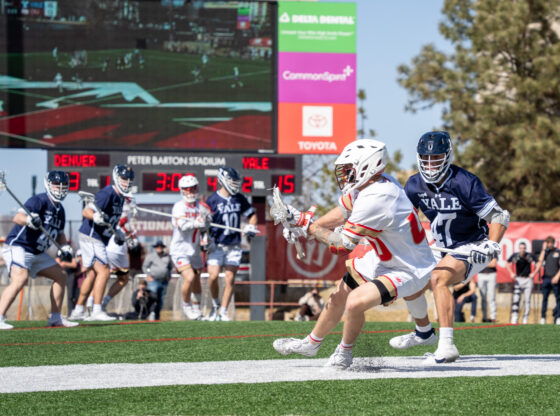 Photo by:
Photo by:
Sometimes, you don’t know what you’ve got until it’s gone. After the tour for 2009 sophomore LP Armistice, lead guitarist Greg Hill left Mute Math, making Odd Soul the group’s first effort as a three-piece, with bassist Roy Mitchell-Cárdenas taking up the reigns as guitarist.
The results of this lineup change are mixed. While the band certainly sounds leaner and freer to experiment, the album also feels chaotic, with an almost unceasing aggression that can make the process of listening to Odd Soul exhausting.
Greg Hill was never a flashy guitarist, often taking a backseat to lead singer Paul Meany’s flamboyant on-stage theatrics and drummer Darren King’s incredibly busy percussion work. That said, Hill did a fine job on Mute Math’s first two LPs, crafting an atmospheric backdrop for each of his band’s songs with a subtlety of expression that put Mute Math miles ahead of its alternative-rock contemporaries.
On Odd Soul, however, the rest of Mute Math has replaced Hill’s somewhat understated guitar work with something louder and much more aggressive; where Greg Hill used to be the glue holding his band’s tracks together, Mute Math now uses a nail gun.This usually shoots in the form of thick, bluesy power chords and more noticeably, incessantly showy drumming.
Darren King is an incredibly talented drummer, a fact Mute Math has always acknowledged, showcasing King’s drum kit right on the front of the stage at live shows. King’s aggression used to always seem appropriate for Mute Math’s high-octane brand of alternative-rock, but it seems that he was instructed during Odd Soul’s creation to play even faster, louder and busier and, as a result, no fill goes unplayed, and no groove remains unaltered.
On certain tracks, this approach works extremely well; despite their somewhat clichéd styles of songwriting, lead singles “Odd Soul” and “Blood Pressure” sound truly thrilling and will stand up remarkably well against what are sure to be a thousand comparisons to The Black Keys.
“Allies” is also a welcome experiment, a song with enough hook and bite to convince listeners that this was the way Mute Math was always supposed to sound.
Next track, “Cavalries,” sounds fantastic as well, with a driving two-part approach that somehow makes the electric organ sound cool again.
Other tracks, however, prove otherwise. “Tell Your Heart Heads Up” starts intriguing, but by the end becomes so encumbered by a mess of polyrhythmic layering that one literally can’t wait for the noise to stop.
Likewise, “Quarantine,” an eight-minute experimental track, is so convoluted and messily thrown together that it will leave some listeners confused, and others simply rolling their eyes.
“All Or Nothing,” on the other hand, which actually recalls a more electronic and ambient Mute Math, is a feast for the ears precisely because it is more restrained.
Closer “In No Time” also fits into this category. In these cases, less really does seem like more, and these two songs leave the listener wishing that Mute Math could have employed less more often.
Odd Soul, in the end, is an album of contradictions. The band certainly sounds like it’s having more fun, but at the same time, its members sound like they’re trying so hard to prove themselves that they’ve lost a little bit of their earnestness along the way.
On the other hand, Odd Soul can be seen as an achievement, as it suggests that Mute Math has weathered the storm of losing an integral member remarkably well. But just because you’ve been through a storm doesn’t mean you need to make an album that sounds like one.











